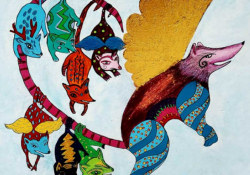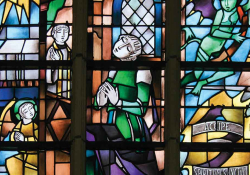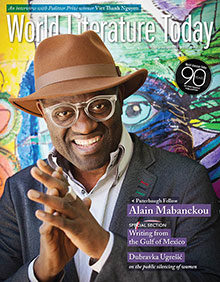Tell Me What’s Happening to Me (an excerpt)

I’m not the first to ask, but for a long time I’ve been wondering about one of the first dilemmas we’ve faced as a band: the question of language. To put it in terms of a question, why is it that the great soloists, the big groups, the truly classic rock musicians—those who last, who transcend the moment to leave their imprint—have English as their creative language? I have yet to meet, so far at least, a single great rock musician who has found in another language the idiom that enables the creation of a work of universal reach. Of course rock exists in other languages—in as many as are spoken (and in what tongue has rock not found expression?). I don’t deny these national rock musics’ reason for being, their legitimacy or validity. It’s only that none have transcended the borders of their respective languages, none have stepped beyond the limits of their languages, none have had the reach they could have had if they had been done in English. The only rock that holds a natural universal level is rock in English. It’s strange . . . but it’s so.
Rock is, of course, music. But in this case the music is accompanied by lyrics. The lyrics have their own music, their rhythm, their patterns. Is there a relationship between the music of rock and the music of the English language? If we go back to the origin of rock, we might find a pair of black slaves giving musical expression, form, and structure to their feelings from inside a church. These first musical expressions were called spirituals—and I don’t think there is a more beautiful or accurate word. Without setting aside the fact that the language in which they are performing is a language imposed by violence, the enslaved wind up giving musical expression, form, and structure to their feelings and sorrows . . . in English. Did they imbue English with the musicality of their feelings and from there were able to create a foundation upon which rock was later built? Did they find, in their use of the idiom, the musicality that their feelings sought, and from there were able to create a foundation upon which rock was later built? In other words, was the force of what the enslaved felt so powerful that English was forever branded by a musical form that survived and continued to establish new musical expressions? Does English have the music that rock needs? Or, to go further, does the music of English permeate, shape, and give its signature to the music of this music that in the long run ends up being rock? Did English give its musicality to rock, and is it only through this musicality that rock with global reach can be created?
Translation from the Spanish
By S. Melissa Steinhardt & Keith Cartwright











